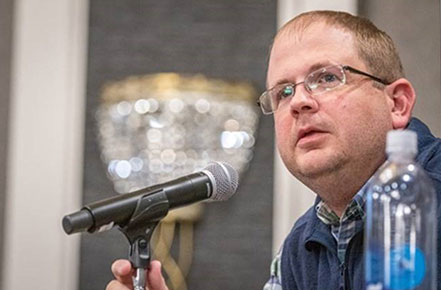August 23, 2021
I hope you are all still enjoying the summer with family and friends.
For the Federal crop insurance program to function well, it needs maximum participation and producers who understand how it works. That is a big reason why delivering training to communities that have historically lacked access to resources is very important to our agency and American agriculture.
Last month, we relaunched our Risk Management Education program with $1 million invested in universities, nonprofits, and other institutions to deliver training to historically underserved producers.
As part of a new ongoing monthly series of messages, I’m going to talk about some of these exciting projects and hear from educators and students about the training and its impact.
One incredibly important aspect of crop insurance is record keeping. Maintaining financial and production records are necessary in the event of filing claims or establishing and abiding by new policies. When claims are reviewed, adjusters may look at production histories or ensure that proper materials were purchased for good farming practices. Record keeping is one of many subjects that the University of Maryland Eastern Shore and the Maryland Department of Agriculture will train historically underserved producers in the state about over the coming months. I had a chance to interview Senior Faculty Specialist, Paul Goeringer.
Richard: We have worked with the University of Maryland in the past through education partnerships and presentations to your students. Can you tell me a little about your background?
Paul: I'm originally from Western Oklahoma and grew up on a wheat and cattle operation out there. I graduated from Oklahoma State University, or OSU, with a Bachelor of Science degree in agricultural economics and later earned a Doctorate degree from law school in Norman, Oklahoma. After law school, I had an interest more in working with producers to educate them on the legal issues they face in their operations. What drew me to all this? I grew up participating in 4-H and Future Farmers of America and was exposed early on to what a University Extension does, and my time at OSU helped me see how specialists work with producers. Once I was done with law school, I had a feeling private practice wasn't for me, and I would rather work educating producers on issues they deal with on their operations and providing them with solutions.

University of Maryland, Senior Faculty Specialist, Paul Goeringer
Richard: In your view, what makes the training you deliver so important?
Paul: Risk management education is important because taking a minute to understand the risks in your operation and how better to manage those risks can save you a lot of money in the operation. For example, with what I do a lot involves managing legal risks, with a producer taking time to look at potential legal risks in operation and developing strategies to manage those risks, the producer may save time and money if a problem arises. The same goes with utilizing crop insurance or any other risk management strategy. As Ben Franklin probably said, an ounce of prevention is worth a pound of cure.
Richard: What are some initial thoughts as we are starting this project at the University of Maryland and others throughout the country?
Paul: I was excited to hear about the funding for risk management education outreach with RMA. Before my time at the University of Maryland and up until a few years ago, the university and the Maryland Department of Agriculture had a long history of partnering with RMA to provide risk management outreach to producers. This funding will help us build upon that success and look at new avenues to provide risk management education to producers. We are very excited to get this project underway.
Richard: What are you hoping to achieve with the training offered?
Paul: Through online learning modules, we will provide historically underserved producers with exposure to financial management, legal education, risk management strategies, and USDA operations and how to find a crop insurance agent. This will allow them to understand better how to manage risks in their operations.
Richard: What impact will this training and the goals you mentioned have in your state?
Paul: These goals are important because although Maryland is a small state, its agricultural production is very diverse, with traditional row crops, vegetable production, livestock, poultry, dairy, and a whole host of other commodities being produced. As a result, much of our target audience will have limited experience with risk management products. Our goals are to help them better see strategies that they might adopt in the operation regardless of size. We hope to use the online learning module format and have outreach materials accessible on-demand, allowing producers to utilize them whenever it works for them. We believe this will have a long-reaching impact on the state.
I thank Paul for taking time to talk with me and sharing some insights on the project ahead. Next month, I’ll check in on a project in California that teaches wildfire preparedness. There’s more to risk management than just crop insurance.
– Richard
